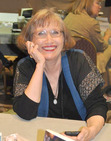Meg Benjamin's Blog, page 23
September 22, 2011
The Boring Serial Killer
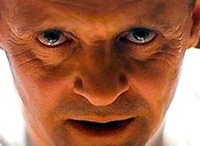 I was watching a rerun of CSI with the hubs the other night. Well, I started watching it, but I got too annoyed to go on with the episode about halfway through. It was the climax of last season's serial killer plot, with Bill Irwin being a maniacal genius. In the end, the whole thing just made me tired.
I was watching a rerun of CSI with the hubs the other night. Well, I started watching it, but I got too annoyed to go on with the episode about halfway through. It was the climax of last season's serial killer plot, with Bill Irwin being a maniacal genius. In the end, the whole thing just made me tired.
Here's the deal folks—I am so sick of genius serial killers that sometimes I want to do a little serial killing myself, aimed at writers and directors who think this is a good plot.
We all know where this started, right? Silence Of the Lambs. Now I'm the first to admit that SOTL is a great movie. In fact, it's one of the few movies that's actually better than the book it was based on IMHO. Hannibal Lector is a marvelous character and Anthony Hopkins did a marvelous job with him (and then proceeded to play him again and again in at least half of the movies he made after that). But here's the thing—he's a character. He's not reality. If you look at most real serial killers, they're not geniuses. They're nut cases who mostly managed to evade capture by moving around a lot and killing perfect strangers.
That's part of the problem with the whole "genius serial killer" thing. The other part of it is the way the police are inevitably portrayed in the serial killer plot—basically, they're morons. The killer lays elaborate traps for them that they always trip into. The killer sends them taunting notes that contain clues they're too clueless to unravel. The killer, in other words, is the puppeteer, while the police dangle on his strings.
Now you could talk about how unrealistic this plot is, but I'd prefer to talk about how clichéd it is. I'm so tired of killers who are wacky enough to go around killing strangers for kicks, but brilliant enough to make the whole thing into some kind of grotesque grand guignol. The only surprises in this plot involve the gruesome things the killer does to his victims.
Of course, some books do buck this trend. Jane Haddam's Glass Houses, for example, features a serial killer who really isn't one and who gets away with it for a while because of a bureaucratic screw-up. Haddam's detective, Gregor Demarkian, is a former serial-killer-hunting FBI agent, and Haddam is even more scathing in her dismissal of the whole "genius serial killer" cliché than I am.
And that's the point here: the serial killer plot has become so clichéd that it's almost impossible to do it with any kind of originality any more. Every serial killer becomes another Hannibal Lector clone, and who wants to see that?
So here's a suggestion. If you're writing a thriller, how about not making the villain a serial killer? How about giving him a motive for a change—money, sex, revenge, and self-protection all work nicely. Yeah, it's harder to create a plot that involves motive than somebody with a degree in particle physics and a guillotine in his basement, but trust me, a lot of us will thank you.








September 15, 2011
What's In a Name?
 So I see from the Sports page that Colt McCoy, former quarterback for the UT Longhorns, has a brother named Case who is the current quarterback for the Longhorns. I mention this only because the McCoys are the only men I've ever run into who actually have names that sound like romance heroes.
So I see from the Sports page that Colt McCoy, former quarterback for the UT Longhorns, has a brother named Case who is the current quarterback for the Longhorns. I mention this only because the McCoys are the only men I've ever run into who actually have names that sound like romance heroes.
Think about it—how many times in real life have you run into guys named Colt or Cade or Lex or Jax or, well, just about any romance hero you can name? I don't know about you, but the closest I come is my nephew Cody, and even that's a more common name than, say, Mikal. Most of the guys I know fall into the Bill/Bob/Dave/Harry/Tony nexus. But even the slightly more exotic names like Josh or Ben or Mark don't show up in romance as often as Nate or Chance or Cade or Seth or Wade.
I'm as guilty as anybody in this—my Toleffson heroes are named Cal, Pete, Lars, and Erik. Of the four, only the name Pete has shown up regularly in my experience. I named the hero of Brand New Me after Steve Earle's song "Tom Ames' Prayer," so his name was a little more run-of-the-mill. But the hero of my newest, Don't Forget Me, is Nando Avrogado, not exactly your guy on the street.
Why do we do this? I think part of it is to create the sort of fairytale atmosphere you find in most romance novels—these aren't normal people and this isn't a normal situation. But it's also a kind of instant characterization. A guy named Chance has a head start on being a romantic hero, simply because he's not someone you'd run into in your daily errands. And, of course, we're not alone in this. Tennessee Williams has heroes named Chance, Val, Brick, Kilroy, and Shannon. If you need an indicator that these plays don't take place next door, the names alone should be enough.
So why don't we run into these wildly romantic names in real life, given the number of women who read romance and might name their sons after their favorite heroes? I think probably because they're a little too wildly romantic. If you name your son Chance, you're putting a heavy burden on his shoulders (not to mention setting him up to be the punch line in several dozen bad jokes). It's going to be hard for him to settle for being an accountant or an insurance agent. So most of us give our kids names that are a little more anchored in reality. But we still love the romance heroes who don't sound anchored there at all.
So my hat's off to the McCoys. Not only did the parents give their sons names that sound like they should be Pony Express riders or sheriffs in Deadwood, but they raised two boys who lived up to all the implications those names involve. After all, quarterback for the University of Texas is nothing to sneeze at. However, if you decide to name your own son Colt, I suggest you might want to give him a middle name like George. After all, he might need someplace to retreat if he decides he really wants to live in the suburbs with a wife, two kids, and a golden retriever.








September 8, 2011
Switching Genres
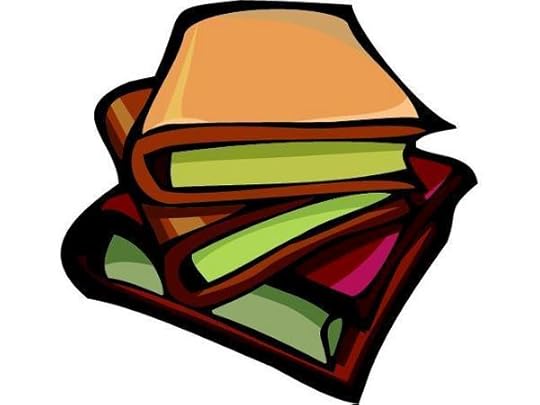 Recently Kim Wright wrote a blog post about the movement of literary fiction writers into genre: http://www.themillions.com/2011/09/why-are-so-many-literary-writers-shifting-into-genre.html. It seems that the valiant lit fic types can no longer make a living writing about despair among the suburbs, thanks to the current publishing climate, and so they're heading over to the genre slums to supplement their incomes.
Recently Kim Wright wrote a blog post about the movement of literary fiction writers into genre: http://www.themillions.com/2011/09/why-are-so-many-literary-writers-shifting-into-genre.html. It seems that the valiant lit fic types can no longer make a living writing about despair among the suburbs, thanks to the current publishing climate, and so they're heading over to the genre slums to supplement their incomes.
Those of us who live in these genre slums can demonstrate that we're big girls and boys by not sneering at the new kids, but it's a little hard to do. After all, we've had so many years of being sneered at ourselves that it's really tempting to get a little of our own back.
There are a couple of things I find interesting about this idea, however. The first is the genres that the lit fic types are heading for. First and foremost is mystery fiction, not surprisingly. Mysteries have always been closer to respectable than some other genres. Writers like Raymond Chandler and Dashiell Hammett have rated serious literary study, showing up in college literature courses. And writers like P.D. James have world views that are as dour as anybody writing lit fic these days.
After mysteries, these writers are turning to science fiction and fantasy, and again those are genres that have long attracted lit fic types who feel like slumming. And currently horror fiction is up there as a genre of choice as well.
Which leaves romance. You'll notice that none of the genre-switching lit fic types is trying to write a romance novel (and no, Pride and Prejudice and Zombies doesn't count). I wish I could say that's because these writers don't feel they could do romance justice, but in fact I suspect that it's because romance is still too low-class for them. After all, no matter how many times Nora hits the NYT bestseller list, she's still not the subject of college courses in anything other than sociology (usually as an example of where neurotic women go to let out their frustrations).
The other thing that strikes me about all this is the confidence that once lit fic writers turn their attention to genre, they'll get it absolutely right and be instantly successful. However, that's an argument I've heard before, mainly from unsuccessful lit fic writers: in their opinion, those who write literary fiction can write anything better than the rest of us. That's because they're writers, you see. And, of course, we're not. Yeah, that's the sound of my grinding teeth you hear in the background.
Anyway, I guess I wish these people well. I know how hard it is to make a living as a writer, particularly when you've got a tweed habit to support. And who knows? After they've labored in our vineyards for a while, maybe they'll develop an appreciation for what we do. Or maybe not. It's tough to abandon the prejudices of a lifetime. As a former literature teacher now turned romance writer, I can tell you all about that.








August 31, 2011
The Great Unpubbed
 The Romance Writers of America, unique among writers organizations, allows unpublished writers the same membership privileges that it gives to published authors (other organizations, like the Mystery Writers of America, have a tiered membership system). The idea behind this policy, apparently, is to encourage aspiring writers to join a professional organization in order to have access to tools that would help them to hone their craft and eventually become published. However, one unanticipated result of this policy has been that the organization now has more unpublished members than published ones.
The Romance Writers of America, unique among writers organizations, allows unpublished writers the same membership privileges that it gives to published authors (other organizations, like the Mystery Writers of America, have a tiered membership system). The idea behind this policy, apparently, is to encourage aspiring writers to join a professional organization in order to have access to tools that would help them to hone their craft and eventually become published. However, one unanticipated result of this policy has been that the organization now has more unpublished members than published ones.
This wouldn't be a problem, particularly, if those unpublished members all aspired to be published. If that were the case, they would be open to workshops, craft-oriented meetings, and critique groups. And, of course, many unpublished authors are involved in all these things. But surveys have indicated that other unpublished RWA members are perfectly happy to be unpublished. They have no particular aspirations toward publication, and, in fact, little interest in what it takes to make the leap from unpubbed to pubbed (RWA uses the euphemism "not career-focused").
The problem here can be summed up in a simple question: is your RWA chapter a professional organization or a social group? The former is made up of people who are interested in the ins and outs of publishing, ways of making their work better, ideas for marketing and self-promotion. The latter is made up of those who want to hear from authors about their latest books and who want to talk to other members about what's going on in their lives. But they don't necessarily want to do much with their own writing careers.
Why is this a problem? It doesn't have to be. However, sometimes those goals clash. For example, I heard one horror story of a "not career-focused" RWA member who scored a meeting with an editor at a national convention—as it turned out, she didn't want to talk about her work (she didn't really have anything anyway). She just wanted to tell the editor how much she liked her publishing house and some of the authors she worked with. Apparently, it never occurred to her that she was taking a spot away from a writer who really wanted to pitch her work to the editor.
I have nothing against social groups, necessarily, but as someone who moved from unpublished to published in part because of the advice and guidance I received from my RWA chapter, I'd say the needs and goals of the two groups are quite different.
The journey toward publication isn't easy, as most of us can attest. It's full of detours, disappointments, and occasional shots at glory. It also requires a lot of work, not all of it pleasant. I can understand why some writers decide to skip the whole thing, but I'm not sure they should be in charge of a professional group that's at least nominally focused on the tough road.
The most obvious answer to this problem is for RWA to adopt a two-tiered membership system like other writers' groups. The organization already has what's called PRO status for members who have submitted manuscripts to publishers. Anyone who falls into that category can be safely considered "career-focused." With tiered membership, the non-career focused would be in a separate category. But that solution is probably not going to fly with the current membership, given that more of the members are unpublished than published.
Giving the members what they want may change radically if most of those members aren't really interested in publishing as a goal. Beyond potential problems in focus, there are also implications for RWA's tax status, none of them good. It's too bad RWA hasn't focused on this problem before, but believe me, they're focusing on it now.








August 24, 2011
Bless Your Heart
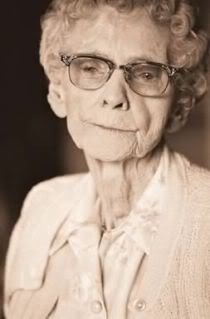
Photo by Shamrockinc, Photobucket
Texas, being the rather large place that it is, has elements of both the South and the West. South Texas, where I lived for twenty years before moving to Colorado, is actually more Western, but I did manage to pick up a few southernisms during my time there. One of them is the phrase "bless her/his heart."
For those of you not familiar with it, "bless his/her heart" is a phrase southerners use to take the sting out of the most biting insults. So, for example, you might say, "Joe Bob Briggs doesn't have the sense God gave a turnip." Pretty harsh, right? And possibly fairly accurate. But if you say, "Joe Bob Briggs doesn't have the sense God gave a turnip, bless his heart" that somehow makes ol' Joe Bob seem less like a mouth-breathing moron and more like one of those lovable small-town eccentrics so prevalent in places like Konigsburg.
It's also a sort of sneaky way to get around any objections that Joe Bob or his supporters might care to make. You didn't exactly call him a moron, after all—not exactly. On the other hand, you haven't really declared yourself a member of Joe Bob's fan club. You're just making an observation about Joe Bob's intellect, but bless his heart shows you really don't mean to be critical. Just honest.
Now I grew up in the Midwest, which is well-known as the Land of Nice. Midwestern girls and boys are taught that you should never make anybody feel bad, that you should always be nice even if you're dealing with somebody who isn't very nice in return. If worse comes to worst, you become very cool and correct, but you never descend to nasty.
But "bless his heart" isn't nasty—not exactly. It allows you to say what you're really thinking—he's an idiot, she's an airhead, they're a rotten couple—without getting hammered for saying it. It's like a Get Out Of Jail Free card. You can be bitchy without really having to pay the price.
Still, once you've played the "bless his heart" card, you've made it pretty clear where you stand. It's not like "just kidding"—you're not really taking your insult back. Instead, you're saying that you do in fact think Joe Bob is a moron but that, gosh darn it, he just can't help himself, can he.
So then the question becomes, how do you defend yourself against the "bless your heart" offense? And the answer is, you don't. You can't be insulted unless you want to come off as a sorehead. And if you throw a "bless your heart" back at the speaker, you just come off as sort of desperate. You might get by with laughing—that's probably what I'd have a a character like Docia Kent Toleffson do if anybody had the temerity to bless her heart. A really devious Southern belle might let her eyes pool with picturesque tears and her lower lip trembling ominously, but that could come off as overkill. I guess in the end, if anybody says anything to you along the lines of "bless your heart," you should probably just smile weakly and duck.








August 11, 2011
Happy Birthday, Mae
 Mae West's birthday is August 17, and those of us in the romance business need to wish her a happy one. She was born 118 years ago. So you might ask, why should we appreciate Mae? Because she was one of those women who paved the way—she wrote plays about sex and about gay men that got her thrown in the clink. She wrote movies about strong, sexual women who didn't take any crap and who got the guy in the end even though they didn't take any crap. And she had a wicked way with a quip.
Mae West's birthday is August 17, and those of us in the romance business need to wish her a happy one. She was born 118 years ago. So you might ask, why should we appreciate Mae? Because she was one of those women who paved the way—she wrote plays about sex and about gay men that got her thrown in the clink. She wrote movies about strong, sexual women who didn't take any crap and who got the guy in the end even though they didn't take any crap. And she had a wicked way with a quip.
West was on Broadway for around twenty years before she headed to Hollywood. During that time she wrote several plays, including a notorious one called Sex that got her thrown in the slammer for ten days in 1927 for corrupting minors (who apparently wouldn't have learned about sex on their own). While she served out her sentence (eight days with two days off for good behavior), she wore her own silk underwear, took her meals with the warden and his wife, and gave lots of interviews. Eat your heart out, Lindsey Lohan!
Her next play after that was called The Drag, a tragi-comic portrait of gay life. That one didn't even make it to Broadway since it was closed down by the Society For the Prevention of Vice.
West headed to Hollywood in 1932 at the height of the Great Depression. She was 40 years old and, as they say, "well-nourished." It didn't matter. She became one of the most popular stars of the Depression Era, and the kind of sex symbol who sent people like Mary Pickford and other guardians of morality into a tizzy.
But what's been lost in the picture of West as a sort of early version of Marilyn Monroe is how really revolutionary her female characters are. Where Marilyn's characters tended to be childlike, Mae's were always very much adults and very capable of taking care of themselves. Where Monroe traded on innocence, West's characters gloried in knowing the score. Mae never chased men in her movies: they chased her. And when she finally gave in to their pleas, it was always on her own terms. Even in My Little Chickadee (which she hated because of her battles with W.C. Fields), West comes out on top in the end, after playing the most knowing schoolmarm of all time. When she sees a blackboard with the sentences "I am a good boy I am a good man I am a good girl" she mutters "What is this, propaganda?"
In fact, it's the nature of Mae's characters that got her in trouble with the censors. It wasn't just that her characters had sex, it was that they were in charge of that sex. Female characters who played around in the movies of the thirties and forties generally were punished for it—with babies, bad reputations, and broken relationships. But Mae's characters behaved like men, taking responsibility for their own pleasure and reveling in it. Scandal! Mae being Mae, she got away with it.
And, of course, there are the quotes. Mae is undoubtedly one of the most quotable figures in the Golden Age of Hollywood. So here goes—most of these are from her movies and most of them were written by Mae herself.
"When I'm good, I'm good. When I'm bad, I'm better."
"Goodness, what beautiful diamonds!" "Goodness had nothing to do with it, dearie."
"When choosing between two evils, I always choose the one I've never tried before."
"Too much of a good thing can be wonderful."
"Why don't you come up and see me sometime—when I've got nothing on but the radio?"
"I generally avoid temptation, unless I can't resist it."
"Are you showing contempt for this court?" "No, I'm doing my best to hide it."
"Good sex is like good bridge. If you don't have a good partner, you'd better have a good hand."
"His mother should have thrown him away and kept the stork."
"I used to be Snow White, but I drifted."
"Those who are easily shocked should be shocked more often."
"Can I hold your hand?" "It ain't heavy. I can hold it myself."
And the most famous, "Is that a gun in your pocket or are you just glad to see me," supposedly delivered off the cuff to an LA cop.
Happy birthday, Mae. And thanks.








August 3, 2011
Chicago, Chicago, That Toddlin' Tome
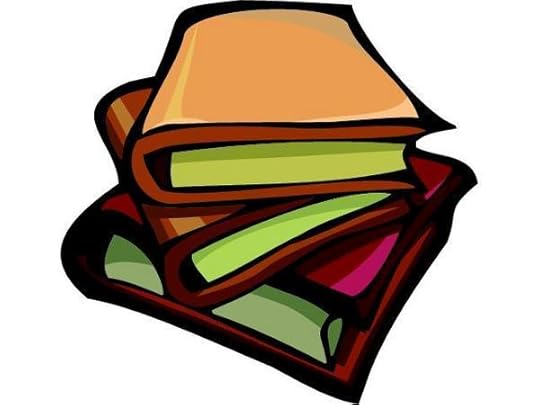 Okay, it's time to admit the truth. Once, long, long ago in the dim, dusky past, I was a copyeditor. Not only that, I actually taught copyediting. Now you'd think this would help me write, but in fact all it really does is help me punctuate. Any copyeditor can tell you that editing your own stuff is always tough. However, my editing experience did help me determine one thing: the Chicago Manual of Style is both the writer's equivalent of Holy Writ and a bitch and a half .
Okay, it's time to admit the truth. Once, long, long ago in the dim, dusky past, I was a copyeditor. Not only that, I actually taught copyediting. Now you'd think this would help me write, but in fact all it really does is help me punctuate. Any copyeditor can tell you that editing your own stuff is always tough. However, my editing experience did help me determine one thing: the Chicago Manual of Style is both the writer's equivalent of Holy Writ and a bitch and a half .
There are a lot of style manuals out there. Some, like Strunk and White, have only limited usefulness (and if you don't believe me, check out their entry on flammable, which, trust me, ceased to be accurate somewhere around 1960). Some, like the AP Style Guide, are useful in particular circumstances, in this case if you're writing for a newspaper. But the Chicago is one of those books that's in a class by itself—it covers everything. Want to know how to deal with transliterated Arabic? The Chicago will tell you. Want to know if you should capitalize centuries? The Chicago knows. Have a copyright question? There's a chapter on it. This, of course, makes the Chicago invaluable as a reference. So what makes it a bitch and a half? Try finding the answer to any question that isn't exactly straightforward and you'll find out.
Suppose you're trying to figure out how to punctuate the following sentence: Her brother Harry was the chief of police in the town. Should Harry be set off with commas or not? Actually, it depends. If the heroine has more than one brother, then no commas are necessary because the name defines which brother is being spoken of (it's a restrictive phrase). But if Harry is her only brother, the name would be set off with commas because brother and Harry are identical, and hence Harry is a nonrestrictive phrase (an appositive). The Chicago covers this in two different sections, but only if you happen to know the terms appositive or restrictive phrase. If you don't, good luck in finding the rule.
To truly use the Chicago, you have to know the terminology used in grammar. If you're a former English major like me, you might be able to do this (although you also might not—I actually learned a lot of this stuff from the Chicago itself since I was a lit major). If you majored in something else, you may find yourself up the creek. And that leads to the Chicago's ultimate Catch-22: if you already know the terminology, you probably don't need to look up the rule. If you know what restrictive and nonrestrictive refer to, chances are you also know how to punctuate them. It's only the people who don't know the terminology (and thus don't know where to look for help) who need to find the information.
Ultimately, this isn't the most frustrating thing about the Chicago. The real problem is that it's so inclusive that you always suspect that the answer to your question must be inside somewhere, but you may spend a lot of time trying to find exactly where. And with very technical things like capitalization, you may well find that no specific rule covers the exact situation you're trying to find. (I should also admit in passing that their usage section is fairly useless, but that's true for a lot of usage guides.)
Still, I'd advise every writer to have a copy of the Chicago on hand. Yeah, you can go to Google and try to find answers, but you may find a lot of different answers to the same question. If you stick with the Chicago, at least you'll always be consistent. Of course, you'll also be frustrated and sometimes a little brain dead, but as we copyeditors can tell you, that's par for the course. And you'll always know the answer is in there. Somewhere.








July 28, 2011
I'm Nobody
I'm nobody! Who are you?
Are you nobody, too?
Then there's a pair of us—don't tell!
They'd banish us, you know.
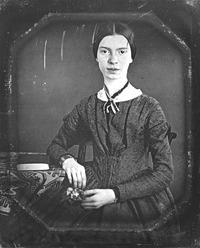 I've been thinking a lot about Emily Dickinson lately. I wish I could tie this post to some significant Dickinson date, but I really can't. She was born on December 10 and died on May 15, so neither one really works with this. Nonetheless, I want to talk about her today and not only because I'm going to be heading off to one of those Big Conferences in a few days where I'll truly feel like the first line of this poem applies to me. No, I started thinking the other day about Emily Dickinson and the self-publishing phenomenon.
I've been thinking a lot about Emily Dickinson lately. I wish I could tie this post to some significant Dickinson date, but I really can't. She was born on December 10 and died on May 15, so neither one really works with this. Nonetheless, I want to talk about her today and not only because I'm going to be heading off to one of those Big Conferences in a few days where I'll truly feel like the first line of this poem applies to me. No, I started thinking the other day about Emily Dickinson and the self-publishing phenomenon.
You see, although Dickinson wrote literally hundreds of poems, fewer than a dozen of them were actually published during her lifetime. Moreover, the ones that were published were usually altered substantially because editors figured most people would be turned off by her idiosyncratic style (to say nothing of her occasionally heretical religious beliefs).
Dickinson herself was sort of a textbook agoraphobe. She lived the latter part of her life without venturing far beyond her own room in the family home in Amherst, MA. After her death, her brother's Significant Other, Mabel Loomis Todd, and Thomas Wentworth Higginson, a critic who had corresponded with Dickinson, published the first edition of some of her poetry after carefully editing (i.e., censoring) her more unusual thoughts and her literary style. The real depth and daring of her poetry wasn't revealed until Thomas H. Johnson returned to Dickinson's original versions and published a complete edition in 1955.
So what does this have to do with self-publishing? Well, just for a moment, consider what might have happened if Dickinson had had access to the Internet. She wouldn't have had to send her stuff to the unsympathetic Higginson for critique (he referred to her as "my cracked poet" when he discussed her with his friends). Today, she might find a congenial on-line class where she could try out her slant rhymes with less conservative readers. Or, more importantly, she herself could put together a small collection of her poems, unedited, and put them up on Smashwords and Amazon for ninety-nine cents.
I'd like to think that she'd have been treated much more kindly if she could have presented her own poetry to a wider audience in the way she wanted it to be seen.
And yet, it's quite possible that Dickinson knew only too well how her own poetry would be received, even if she'd been able to get it out there where it could be read. It's quite possible that Higginson and Todd represented the way most readers would have reacted to something so unconventional. Even if she'd been able to publish her poetry unaltered, there's no guarantee it would have been read, or if read, understood and appreciated.
So maybe Dickinson knew what she was doing. Maybe she was one of those rare writers for whom writing itself was the reward. And maybe even now she wouldn't want to present her poetry to the outside world for other people to see and maybe misunderstand. Unlike a lot of us who agonize over readers and critics and editors and agents, maybe Emily figured the hell with it and wrote strictly for herself. After all, that poem that I quoted at the beginning of this post has a second stanza too.
How dreary to be somebody!
How public, like a frog
To tell your name the livelong day
To an admiring bog!
I think I'll keep those lines stored away in the back of my mind. They'll come in very handy after the next rejection.








July 21, 2011
And Whose Little Genre Are You?
 Nora Roberts' Brides Quartet was a high point for a lot of us last year. It was a return to straight romance—no serial killers, escaped criminals, or power-mad master criminals to be found. And, of course, all four books were lovely, which helps quite a bit.
Nora Roberts' Brides Quartet was a high point for a lot of us last year. It was a return to straight romance—no serial killers, escaped criminals, or power-mad master criminals to be found. And, of course, all four books were lovely, which helps quite a bit.
Those of us who write contemporary romance have been struggling a lot with a central question over the last couple of years—what's the difference between contemporary romance and romantic suspense? The two genres are, or ought to be, distinct, yet they've seemed to drift closer and closer together. I think there's one major reason for this—the necessity for creating some kind of conflict in your plot.
Now the conflict at the heart of contemporary romance is the one between the hero and the heroine—how, when, and where will they get together (the central "will they get together" question has already been settled since the novel is a romance). But that conflict alone isn't enough to actually carry most novels. Thus the need to throw in something else. Maybe the hero and heroine work together and some huge project needs to be accomplished. Maybe there are economic problems involved and somebody's home or business is in peril. Maybe somebody has an awful mother, father, sister, or brother (or, I suppose, uncle or aunt or cousin) whose baleful influence must be overcome. Maybe the awful person is the ex-boyfriend or ex-girlfriend who's made it difficult for the main character to trust other lovers. All of these are standard contemporary plots, and many contemporary novels use more than one.
But more and more these days, you'll see contemporary novelists going for crime as the complicating element. These contemporary novelists include me, of course. Most of my Konigsburg books include some kind of nefarious activity, although I've never included murder simply because I think that would undermine my usual light tone. Crime is an easy conflict to create. You never have to worry about whether the conflict is serious or not because crime undoubtedly is serious. And you never have to try to come up with a way to make people care about the conflict. Again, crime is the kind of thing people care about automatically.
But then the problem arises—what separates the contemporary romance from romantic suspense. If both genres center around crimes and the way people react to them, how can we talk about them as separate genres?
Shaky as it may be, I'm going to go with tone here. Most contemporary romance is light, sometimes even comic. Those of us who write it don't always take ourselves too seriously. Romantic suspense, on the other hand, is dead serious, and frequently deadly. The difference between contemporary romance and romantic suspense can be seen in something like Jennifer Crusie's Maybe This Time compared to Ghost Moon by Karen Robards. Both are ghost stories. Both involve a long ago murder and a more recent murder attempt. Both are fairly scary. But Maybe This Time is also funny, and Ghost Moon is not, nor is it intended to be.
I guess my point here, and yes I do have one, is that the genres aren't strictly divided, but you can sort of make distinctions between them. Crime isn't strictly the purview of romantic suspense, but there's an attitude that I think belongs more with romantic suspense than with contemporary. It's not much of a distinction, I'll grant you, but it's a real one. And, you can argue, if there's a little slop-over either way, nobody's really going to be hurt. Unless you take your genre identification very seriously indeed.








July 14, 2011
Critiques and Rants
 I'm a big believer in critique groups. I feel like I have to begin this post by reiterating that because what I'm going to write may sound like I'm not. Good critique partners can help you find your voice and see your way clear to whatever you need to do next. Bad critique partners, on the other hand, can, well, ruin you day.
I'm a big believer in critique groups. I feel like I have to begin this post by reiterating that because what I'm going to write may sound like I'm not. Good critique partners can help you find your voice and see your way clear to whatever you need to do next. Bad critique partners, on the other hand, can, well, ruin you day.
I got a bad critique partner a while ago. In this particular critique group, you're assigned critique partners somewhat randomly. The only requirement is that you get at least one review from a published author. This time around I got my published author review last. I debated whether to look at it before going to bed or to let it go, and I decided to look at it. Bad idea.
What I received wasn't so much as critique as a slam. The author didn't give me a point-by-point reading, she gave me a couple of splenetic paragraphs in which she ranted about my characters, my plot, and my writing, all of which she hated.
Let me assure you, first of all, that that's not what a critique is supposed to be. Even if you don't much like something you're reading, you're still supposed to read it carefully and point out things that are and aren't working, even if you can't find much of the former. Moreover, you owe it to the writer you're critiquing to take her work seriously, even if you suspect it's not going anywhere. Ranting about how much you hate it doesn't qualify.
I was annoyed enough by this particular critique to do a little online background checking on the author. It turned out that we had a publisher in common, and she was having some problems with them at the moment. It's not much of a stretch to believe the vitriol she directed at me was actually directed at the publisher who was annoying her. In other words, there was a Personal Problem involved here.
But the nastiness of that particular critique put me off that critique group, although it obviously wasn't their fault. I haven't been back there since. And that's the problem with bad critiques. You can shrug them off, but they leave a bad taste in your mouth afterward. Which perhaps brings me to my point.
You may sometimes do a critique in a bad mood. You may sometimes do a critique of a genre you don't particularly like. You may sometimes do a critique for someone you know personally and don't regard too highly. None of that matters. Difficult though it may be, you can't let your personal feelings get in the way. You have a responsibility to the person on the other end. Whether you like it or not, she put some work into this piece. And you owe it to her to do the same.









